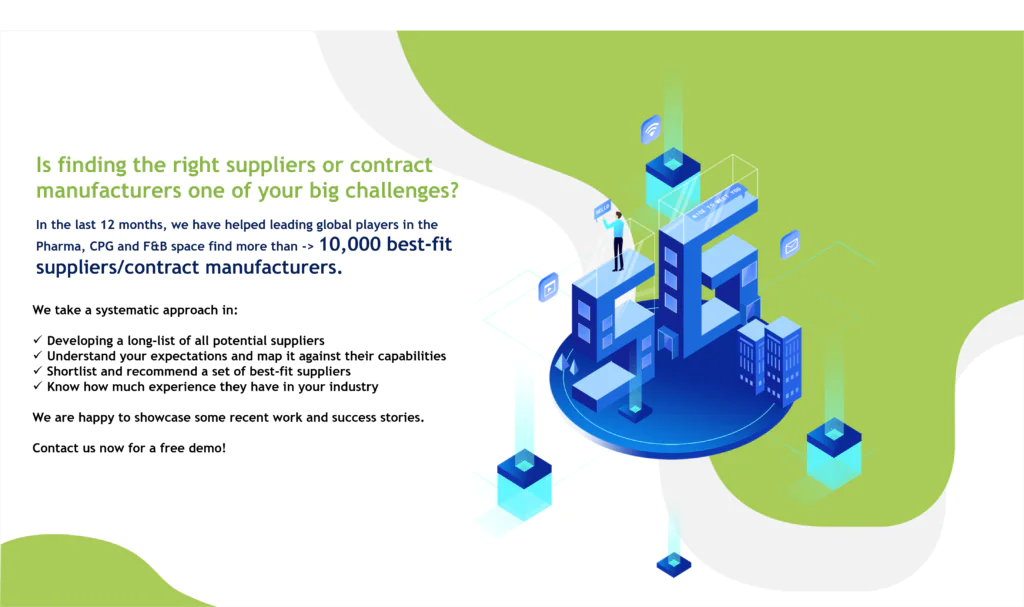By: Manpreet Kaur
ESG Procurement incorporates Environmental, Social, and Governance factors into procurement and supply chain management. Its objective is to encourage responsible sourcing, mitigate environmental impact, and uphold ethical business practices in the supply chain. Since an enterprise may have numerous suppliers, the primary task of procurement is to determine the key focus areas. This requires identifying hotspots in the value and supply chain and suppliers that have the most significant impact on ESG. Initially, narrowing down the search to identify suppliers with the highest ESG impact may seem like a challenging task.
Companies must prioritize environmental, social, and governance (ESG) issues for multiple reasons. They may aim to satisfy consumers who prefer brands with strong ESG credentials, even with higher prices. Or they may want to stay ahead of increasingly strict regulations. Some may respond to pressure from banks and investors, and others may want to improve employee engagement or attract and retain talent. Typically, organizations face a combination of these factors, which require them to understand and manage their environmental impact in real time across all parts of the business.
What are the numerous benefits associated with implementing ESG Procurement practices?

Uncover opportunities for cost reductions:
ESG (Environmental, Social, Governance) procurement practices enable companies to strategically manage their supply chain’s environmental impact, yielding cost savings through resource efficiency, waste reduction, and energy conservation. By prioritizing sustainable suppliers and implementing eco-friendly processes, companies can minimize resource usage, decrease waste generation, and lower energy consumption, leading to tangible cost reductions. This proactive approach not only aligns with corporate responsibility objectives but also enhances operational efficiency, resilience, and long-term financial performance. Through ESG-driven procurement, businesses optimize their bottom line while fostering a more sustainable business model, ultimately benefiting both the environment and their economic sustainability.
Mitigate environmental, social, and governance risks:
Integrating ESG (Environmental, Social, Governance) factors into procurement processes empowers companies to systematically identify, assess, and mitigate risks related to the environment, society, and governance. By proactively evaluating suppliers’ sustainability practices, companies can mitigate potential disruptions in the supply chain, avoid regulatory penalties associated with non-compliance, and safeguard against reputational damage stemming from unethical or unsustainable practices. This strategic approach enhances resilience, fosters stakeholder trust, and ensures long-term viability by prioritizing suppliers that align with ESG principles. Ultimately, it enables businesses to navigate evolving regulatory landscapes, uphold ethical standards, and sustainably manage risks throughout their supply chain.
Creates new market opportunities:
ESG (Environmental, Social, Governance) procurement catalyzes innovation by incentivizing suppliers to develop novel products, services, and processes that tackle sustainability challenges. Through collaborative partnerships, companies and suppliers engage in co-innovation efforts aimed at creating eco-friendly solutions, such as renewable materials or energy-efficient technologies. This proactive approach not only addresses environmental concerns but also unlocks new market opportunities by meeting growing consumer demand for sustainable products. By fostering a culture of innovation within the supply chain, ESG procurement enables companies to differentiate themselves in the market, drive revenue growth, and enhance their competitive advantage while contributing to a more sustainable future.
Stakeholder engagement:
Engaging stakeholders on ESG (Environmental, Social, Governance) issues fosters trust, credibility, and stronger relationships across the business ecosystem. By transparently communicating sustainability efforts and seeking input from suppliers, customers, investors, and other stakeholders, companies demonstrate a commitment to responsible business practices. This inclusive approach builds trust by showcasing a genuine dedication to addressing societal and environmental concerns, enhancing credibility as a socially responsible organization. Stronger relationships are forged through collaborative efforts to co-create sustainable solutions, aligning business objectives with stakeholder expectations. Ultimately, this engagement cultivates a positive reputation, fosters loyalty, and attracts like-minded partners, driving long-term success and resilience.
How to form an appropriate ESG procurement plan?
Understand and quantify the organization’s current ESG footprint:
To begin, the organization must comprehensively assess its current ESG (Environmental, Social, Governance) footprint, utilizing quantitative measures to understand the extent of its impact. This analysis identifies key risk areas and improvement opportunities, guiding the prioritization of efforts in line with the company’s overarching ESG agenda. By determining the most significant factors relevant to stakeholders and aligning them with corporate values, the company can set clear goals and targets for sustainable procurement. These targets should be specific, measurable, achievable, relevant, and time-bound (SMART), ensuring meaningful progress toward enhancing sustainability across the supply chain.
Define ESG metrics and policies:
The organization must establish ESG (Environmental, Social, Governance) metrics and policies to embed sustainability into standard supplier selection, procurement, and supply management processes. This includes defining criteria related to environmental impact, social responsibility, and governance practices. Concurrently, it will prioritize key ESG themes, initiating cross-functional innovation and improvement projects. For instance, collaborating with value-chain partners to reduce emissions in critical supply chain areas. These initiatives align with the organization’s commitment to sustainability, driving impactful change throughout the value chain while enhancing transparency, accountability, and resilience in supplier relationships.
Integrate sustainable purchasing practices:
The organization can transition by scaling up successful initiatives and implementing sustainable purchasing practices across its operations. This entails integrating sustainability into procurement processes and providing continuous training on sustainable procurement principles to the procurement community. By tracking performance against established targets, the organization ensures accountability and progress towards its sustainability goals. This holistic approach fosters a culture of sustainability, driving long-term impact by embedding environmental, social, and governance considerations into procurement decisions. Ultimately, this shift strengthens the organization’s resilience, reputation, and ability to address evolving stakeholder expectations in a responsible and transparent manner.

Contact us now to solve your procurement problems!
Author’s Details
Manpreet Kaur
Assistant Manager Presales – Sourcing and Procurement Intelligence
Manpreet is a presales specialist at Infiniti Research and has expertise in sales, business strategy execution, and innovative solution design. She is actively involved in supporting clients from F&B, CPG, Healthcare, Pharma, Chemicals, BFSI, Oil & Gas and Automotive sectors.




